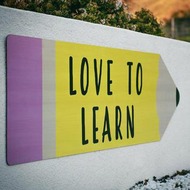
(View Complete Item Description)
One in five students in the U.S. are estimated to have learning and attention issues. Specific learning disabilities can include dyslexia, dysgraphia, and dyscalculia, while attention deficit hyperactivity disorder (ADHD) centers on an individual's challenge with focus. Learning and attention issues often co-occur. These brain-based differences are not the result of low intelligence, poor vision, or hearing. Although young people will not ‘grow out’ of their learning or attention challenge, the appropriate, evidence-based programs and strategies can support a learner to become successful in school, work, and life.
It is particularly important that these interventions occur early on (ideally prior to third grade) to provide students the support they need at critical periods of learning and development. While learning and attention challenges affect all learners from every income level and across all races, genders, and ethnicities, students who are Indigenous, Black, Brown, living in poverty, or learning English are more often over- or under-identified with specific learning disability diagnoses.
Material Type:
Teaching/Learning Strategy
Author:
Digital Promise




















